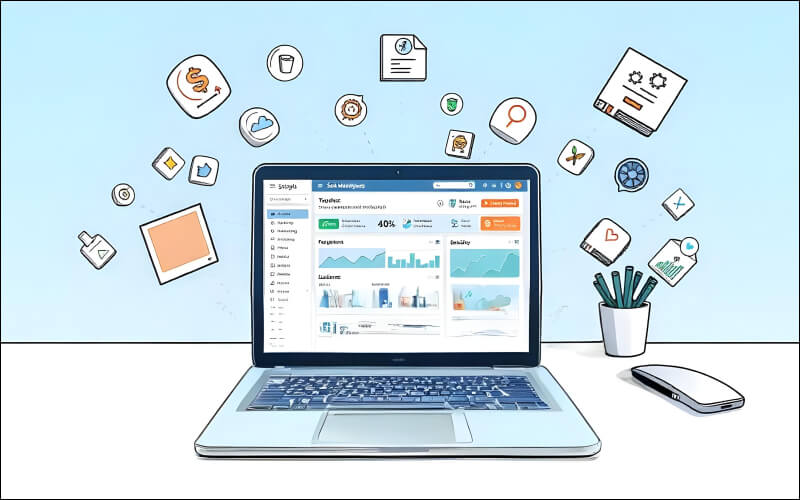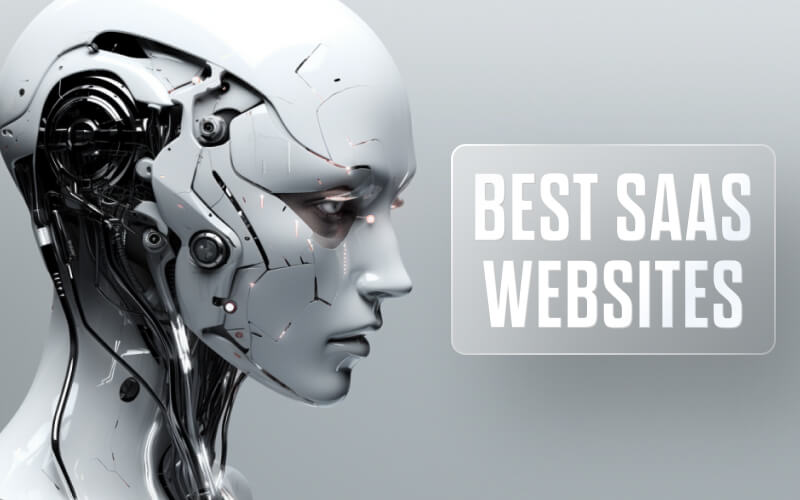SaaS marketplaces are centralized hubs where you can discover, compare, and buy a wide range of software as a service applications from multiple vendors, like app stores but for business applications and their success depends on a solid business model. These platforms offer product information, user reviews, and integration capabilities, good for businesses looking for software solutions and vendors looking for more visibility and customer reach.
Understanding the SaaS Marketplace
A SaaS marketplace is an online platform that brings together multiple SaaS applications from different vendors, where customers can discover, compare and buy cloud based software in one place. These platforms often have businesses with a proven track record of continued growth so are attractive to buyers. These marketplaces work like app stores but for business cloud software. They have a diverse range of SaaS products covering domains like project management, customer support, marketing automation and accounting, many with net profit listed to attract investors. Key features of SaaS marketplaces include product descriptions, user reviews, ratings and often integration capabilities between different applications. For businesses these are a one stop shop to explore software options, for SaaS vendors increased visibility and access to a wider customer base. Examples of SaaS marketplaces include Salesforce AppExchange, Microsoft Azure Marketplace and Amazon AWS Marketplace.
SaaS Marketplace Requirements
When choosing a SaaS marketplace, consider the following key factors to ensure the platform meets your business needs and provides a good user experience:
Customer Support: Look for marketplaces with responsive and knowledgeable customer support.
User Experience: Choose a platform with an easy to use interface for administrators and customers.
Security and Compliance: Check the marketplace meets the relevant security standards and compliance regulations.
Integration: Select a platform that integrates with your existing software and systems.
Scalability: Choose a marketplace that can scale with your business without impacting performance.
Single Point of Failure: Ensure the marketplace doesn’t have a single point of failure, e.g. one customer acquisition channel.
Customization: Look for platforms that allow you to brand the marketplace to your identity.
Pricing Transparency: Choose a provider with clear and transparent pricing models.
Vendor Management: Evaluate the platform’s ability to onboard and manage multiple vendors.
Analytics: Select a marketplace that provides robust analytics tools to track performance and user behavior.
By carefully considering these factors, you can choose a SaaS marketplace that aligns with your business goals and provides a solid foundation for growth and success. Understanding these factors is crucial for success. For more insights on micro SaaS, check out our blog on Micro SaaS.
SaaS Business Marketplaces
Here are the top 10 SaaS marketplaces where you can buy SaaS businesses, each with asking price. Knowing the role and contributions of the current owner is key to a smooth transition. These marketplaces have options for buyers looking to buy SaaS businesses from small side projects to established companies with big profit. Each platform has its own features and services to cater to different buyer needs and preferences in the SaaS business acquisition market. They also have listings for other types of software companies so you have more options as a buyer:
Empire Flippers
Empire Flippers is a top curated online marketplace for buying and selling digital businesses, including SaaS companies. They have a streamlined process for vetting businesses, transactions and ownership transfer. Buyers can search listings, view financials and work with brokers to negotiate deals.
Pros:
Vetting process for listed businesses is rigorous so quality is high
Provides financials and analytics
Dedicated support from experienced brokers
High value deals, often $1M+
Cons:
Higher fees than some other platforms
Limited inventory of smaller businesses
Longer sales process due to vetting
Acquire.com
Acquire.com is a platform for buying and selling SaaS startups and other tech businesses. It connects vetted buyers with founders looking to sell their companies. The platform provides business metrics and secure transaction.
Pros:
Only tech and SaaS startups
No broker fees for buyers
Detailed metrics and financials for each listing
Vetted buyers only, no time wasters
Cons:
Only startups, may not have many established businesses
Competitive for popular listings
Less hand holding through the process compared to full service brokers
Flippa
Flippa is one of the biggest marketplaces for buying and selling online businesses, including SaaS companies. They have a wide range of listings at different price points. Buyers can communicate with sellers, do due diligence and complete transactions through the platform.
Pros:
Big marketplace with many listings
Direct communication with sellers
Lower fees than some broker assisted platforms
Suitable for small and large businesses
Cons:
Less vetting process, more due diligence required from buyers
Overwhelming due to many listings
Quality of listings is inconsistent
Website Closers
Website Closers is a brokerage that specializes in online businesses, including SaaS. They offer professional valuations and work closely with buyers and sellers throughout the acquisition process.
Pros:
Specializes in online businesses, including SaaS
Professional valuations
Support throughout the entire acquisition process
High quality, vetted listings
Cons:
Higher fees due to full service brokerage
potentially longer sales process
limited inventory
FE International
FE International is a merger and acquisition advisory firm that specializes in SaaS, e-commerce and content businesses. They have a curated selection of vetted businesses and provide full support throughout the buying process, including due diligence and negotiations.
Pros:
SaaS, e-commerce, content businesses
Full support and advisory services
Vetting process for high quality listings
Strong reputation
Cons:
Higher fees for full service brokerage
limited inventory, primarily larger deals
not suitable for small businesses
BizBuySell
BizBuySell is a big business for sale marketplace that includes SaaS companies. While they cover many industries, they have a technology section where buyers can find SaaS businesses. Buyers can communicate directly with sellers and do due diligence through the platform.
Pros:
Big marketplace with many businesses
Has a technology section for SaaS businesses
Direct communication with sellers
Tools for due diligence
Cons:
Less SaaS focused than tech specific platforms
quality of listings can vary
limited support compared to full service brokers
Microns.io
Microns.io is a marketplace for micro-startups, including SaaS businesses, typically valued under $100,000. Commission free platform for buyers and sellers, listed projects must have at least a few users (free, trial or paying).
Pros:
Micro-startups, perfect for small SaaS businesses
Commission free
Projects with existing users, some traction
Cons:
Limited to businesses valued under $100,000
smaller marketplace
less support and guidance
Little Exits
Little Exits is for small web-based projects, including SaaS businesses, valued at $100,000 or less. Buyers can browse listings and complete transactions on the platform, sellers must connect their Stripe account for payment processing.
Pros:
Small web-based projects, including SaaS
For buyers looking for cheap businesses
Streamlined transaction process
Cons:
Limited to businesses valued at $100,000 or less
smaller selection of inventory
may not have established or higher revenue businesses
SideProjectors
SideProjectors is a marketplace for buying and selling side projects, including SaaS businesses. It’s a platform for entrepreneurs to find projects that have been abandoned or looking for new ownership.
Pros:
Good for early stage or side project SaaS businesses
Often unique or niche projects
Can be a source of cheap acquisitions
Cons:
Many projects are underdeveloped or have no traction
Limited financials for listings
Not for buyers looking for established businesses
These marketplaces offer different options for buyers looking to buy SaaS businesses, from small side projects to established businesses with revenue. Each platform has its own features and services for different buyer needs in the SaaS acquisition market. Looking for more detailed guidance on buying SaaS businesses? Our blog on SaaS business for sale offers comprehensive insights.
Choosing the right SaaS marketplace is a critical decision that can significantly impact your business’s efficiency, scalability, and success. By carefully considering factors like pricing, integration capabilities, security, and customer support, you can find a platform that not only meets your current needs but also supports your future growth. Remember, the best SaaS marketplace is one that aligns with your business goals, provides value, and empowers your team to achieve more with the tools at their disposal. Make your decision with these essential factors in mind, and you’ll set your business up for long-term success.



Pingback: SaaS Business for Sale Comprehensive Guide - Altorise Hub